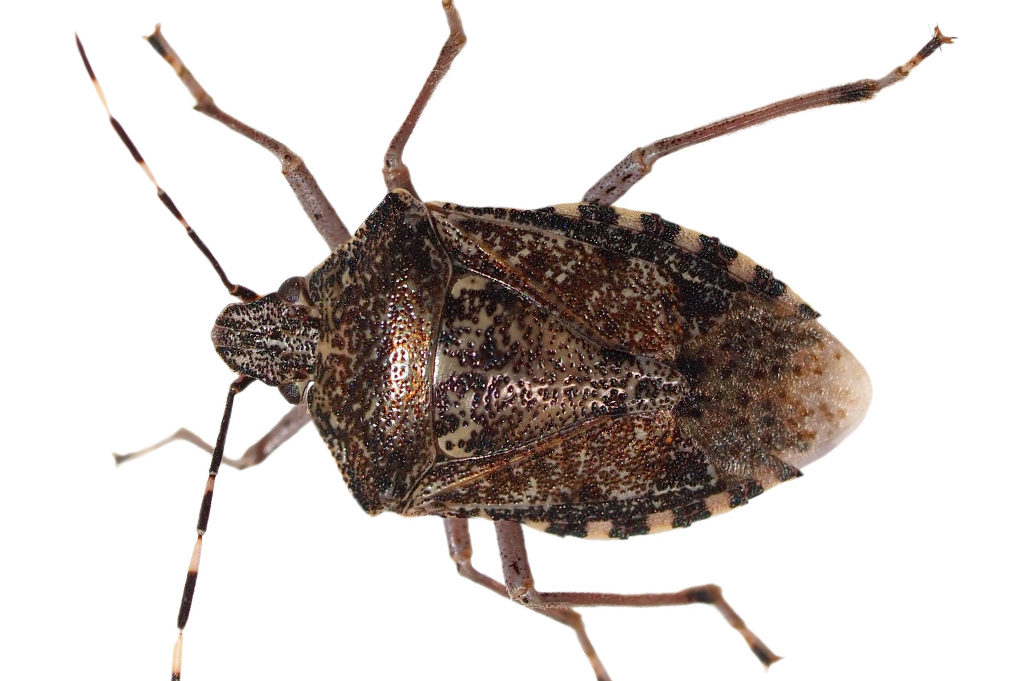
Stink Bugs: Quick Facts
• Brown marmorated stink bugs arrived in Pennsylvania in 1996
• They are an invasive species from Asia
• The name comes from the fact that they release an odor when they are disturbed or crushed. This characteristic, however, is not limited to these ‘stink’ bugs.
What does a Stink Bug look like?
• Molted grayish-brown
• Approximately ¾” in length
• 6 legs
• Antennae
• Triangular or shield shaped
What do they eat?
• Adults feed on fruits
• Nymphs feed on leaves, stems, and fruit
Where do they live?
• Under piles of lawn debris, such as leaves and fallen wood
• On fruit and vegetable plants
Are they dangerous?
• They are not known to bite humans
• Their propensity to invade homes in large quantities can be quite a nuisance
• They are potentially dangerous to fruit and vegetable crops
How can I prevent a Stink Bug infestation?
• Remove harborage sites such as piles of leaves and mulch, and other vegetation
• Seal all possible entry points with a silicone-based, or silicone-latex caulk
• Repair damaged door and window screens
How do I get rid of them?
• Vacuums can be an effective way to eliminate small quantities of Stink Bugs. Be sure to discard the vacuum bag as the odor may permeate the area.
• If you suspect an infestation, it is recommended that you contact a licensed pest control specialist. Please call DKS Pest Control at (724) 478-5344.
